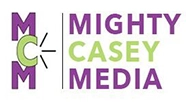If you’ve been paying attention, you know that yours truly got the chance to attend the annual Cochrane Colloquium in Edinburgh in September this year, thanks to a travel stipend from SPM, a #PatientsIncluded bursary from Cochrane UK, the hosts of the 2018 Colloquium, and a stipend from the NHS for the #BeyondTheRoom project to help cover the event for the global audience. And I’m sure there are a good number of you who are still thinking, “That’s great, but what the heck is Cochrane? And how did they get to be the ones running the ‘Hogwarts Sorting Hat’ of global medical evidence?” Forgive me, but I’m a comedy writer, and that breaks through from time to time, no matter how hard I try to stifle it. Anyway, Cochrane is named for a Scottish doctor, Archibald Leman “Archie” Cochrane, who wrote “Effectiveness and Efficiency: Random Reflections on Health Services” (the link will let you download the whole book in PDF) in 1972. Archie Cochrane advocated for randomized clinical trials (RCTs) for, well, everything – treatments, practice methods, research protocols, an “all of the things” approach, on a loop – which was not how medicine was being practiced under the prevailing “doctor knows best” practice model in place across the globe. “The art of medicine to preserve autonomy, the science of medicine to preserve authority” rules pointed out by many people seeking to make medical science more science than “because it’s how I do things” – those rules have been snarked at by both your correspondent, and Dr. Al Mulley at Dartmouth, among a host of others. Archie Cochrane influenced the thinking, and practice, of many other clinicians with his thought leadership on practice variation, practice standardization, and the use of RCTs to fine tune medical science. One of the people he influenced was Iain Chalmers, who, in 1993,…
Read More



